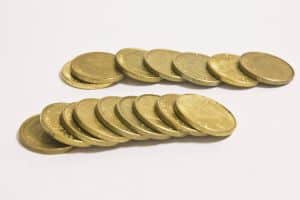As we mentioned earlier today in our weekly email to subscribers Iran is due to start trading it’s oil in other currencies due to sanctions imposed restricting them from using dollars and the usual banking system. In the following article you’ll learn some more detail about how gold is likely to figure in this mix. Unlike initial rumors gold it seems won’t be directly involved in the oil trades (not yet at least anyway). However read on and you will see it may already be having a behind the scenes role in “balancing payments” between Iran and it’s remaining trading partners…
By Louis James, Casey Research
Economic crises signal that the current system isn’t working as expected and needs improvement. When it comes to monetary systems, questioning their fundamentals can lead to doubts about whether the preferred medium of exchange will continue to be preferred for long. The large-scale whirlwind of economic trouble around the globe has pushed some to rethink the role of gold in the economy – and to actually move toward bringing it back.
A month ago, a rumor that India is going to pay in gold for oil imported from sanction-struck Iran sent shockwaves through the markets. It was no small deal, both in principle and volume: India is one of Iran’s largest oil buyers, responsible for about 22 percent of total exports and worth about US$12 billion per year. China is next with 13 percent, and Japan is third with about ten. All of them are having a hard time dealing with Iranian oil imports, as the country is under sanctions caused by Western fears regarding its nuclear program.
Then an Israeli news site claimed exclusive knowledge of a possible workaround between India and Iran: settling the purchases in gold. Indian government officials refused to comment, which added to the speculation.
On the surface, the arrangement looked like a great way to settle the purchases via a stable medium: Iranian currency, the rial, is not widely used outside its border, and gold’s inherent anonymity would have provided a perfect way to avoid unnecessary attention from the global community. Ironically, it was precisely the fact that the settlement was planned in gold that attracted so much attention.
It proved to be nothing but a rumor, however: the sides decided to arrange the deal in a more tactical manner. India will partly cover the purchases with its own currency, and Iran will later use those funds to acquire imports.
But gold is not out of the equation yet. The US-initiated sanctions were effective, at least in the sense of making international institutions avoid the pariah nation. Reuters reported that Iran has failed to organize imports of even basic food staples for its population of 74 million. Prices on local markets rose sharply; and as the country neared parliamentary elections on March 2, the government was taking radical steps to provide citizens with basic necessities. One of those unconventional solutions was offering gold as barter for food.
“Grain deals are being paid for in gold bullion and barter deals are being offered,” one European grains trader said, speaking on condition of anonymity while discussing commercial deals. “Some of the major trading houses are involved.”
Another trader said: “As the shipments of grain are so large, barter or gold payments are the quickest option.”
Trading in gold rather than a fiat currency is “cashless.” That may sound as if there’s no medium of exchange, but that is of course a misconception: gold is history’s longest-standing medium of exchange.
As long as the sanctions remain in force and the Iranian government has limited access to international currency markets, gold will remain an obvious way to settle transactions. Decreasing oil imports to Japan, the world’s third-largest importer, will impact the Iranian economy further, draining foreign currency inflows. Lacking foreign currency may push the country to continue using its foreign exchange reserves, or gold, to cover its international liabilities. Oil looks like a viable, though less convenient, alternative as well.
The Iranian economy is in a state of crisis, and due to the lack of trust in its currency, leaders are increasingly resorting to extraordinary offers to trading partners. The situation would clearly worsen if the country enters a state of war. While that’s still speculation, imagine what would happen to the price of gold if a part of Iran’s 29-million-ounce gold reserve becomes a medium – not an object – of exchange in international trade.
That reduction in potential supply could be a game-changer, not only because of crisis-struck Iran, but because it could open the door for other countries to follow suit. The price of gold would likely respond very positively.
This scenario, while possible, may not happen very soon: large-scale trading in gold has occurred only rarely in recent years. Traces of deals are difficult to track down due to the anonymity of the yellow metal. This re-emphasizes our point regarding gold as money in extremis: when economic push comes to shove, gold will outlast any other medium of exchange in existence. As the evidence from Iran shows, even governments – the masters of the central banks – will resort to mankind’s oldest form of money when pressed.
Which brings us to this evergreen conclusion: Gold is one of the best assets to own in both good times and bad. It can rise with inflation in a surging economy, and it can be practical for exchange when times are bad.
Gold isn’t just a hedge; it’s money.
[There are many ways to take advantage of shifting attitudes toward gold… including buying in at deeply discounted rates. Get started today.]

Pingback: More on planning for Bank Failures in NZ | Gold Prices | Gold Investing Guide